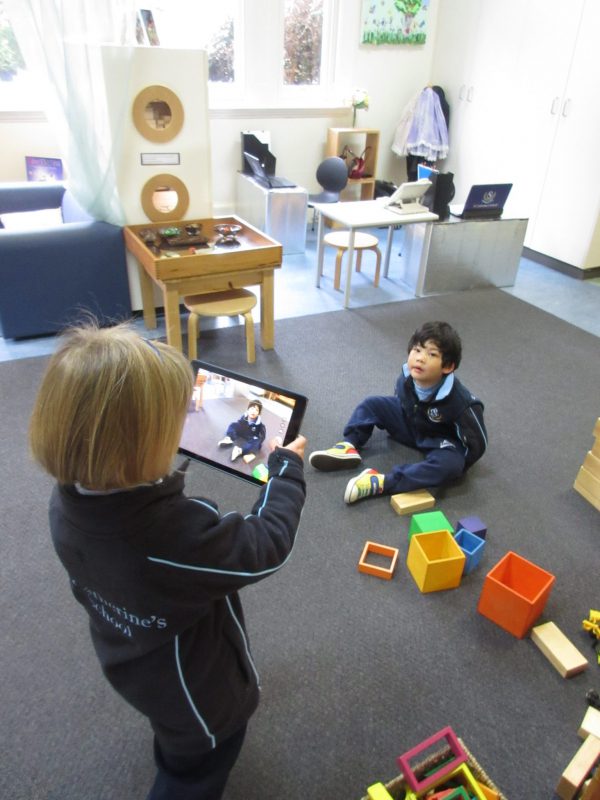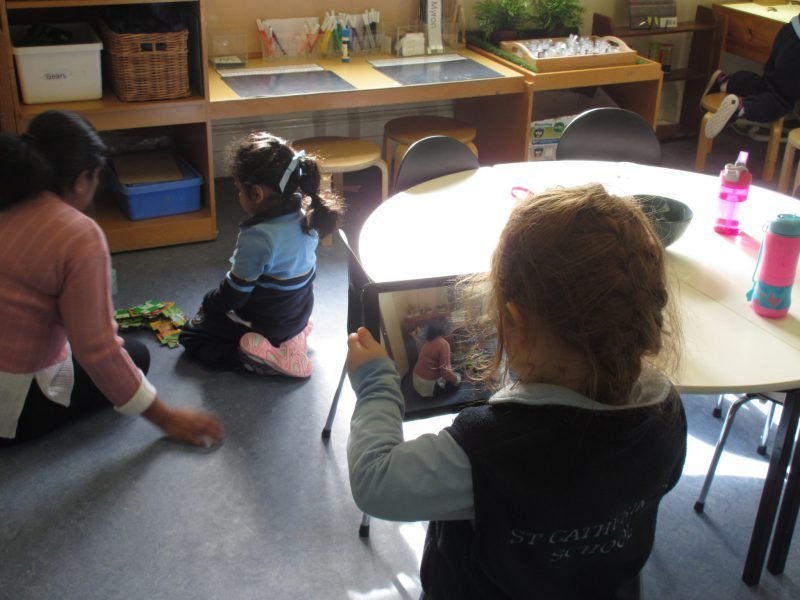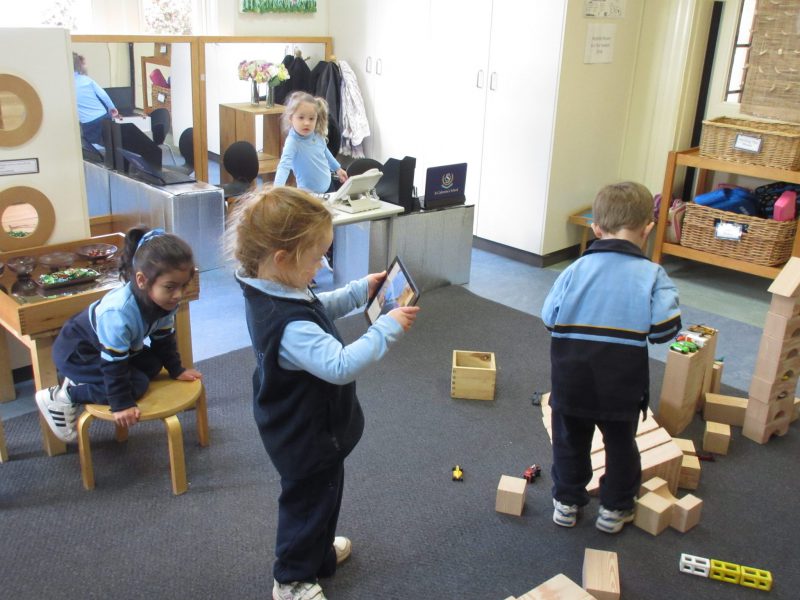Campbell House News

The Waratah Room – Traces of Our Community
This Term, the children of the Waratah Room have been participating in a centre-wide project focusing on our community.
Initial discussions involved children defining what a family and community is to them, unpacking the meaning behind it and looking for representations of this within our classroom community.
Developing a strong sense of community contributes to a child’s understanding of their identity. A strong sense of community is integral as children begin to analyse and interpret their environment, piecing together the world and their place within it. It affords children the opportunity to collaborate and focus their attention on their peers and the relationships that exist between them and both the children and the environment.
The children in the Waratah Room defined a community as:
- People who care for each other and our toys.
- People who share their toys.
- People who look after each other.
- People who work together.
- People who help each other.
Following these discussions, educators have continued to work with the children to find traces of these values within our classroom community and capturing these moments for documentation and exhibition at a later date.
When active examples of these moments have been identified, both children and educators of the Waratah Room, came together to reflect and discuss these in further detail to highlight the importance of these interactions within our community.
Play and Learn – Indoors and Outdoors
Our outdoor play area provides many inspiring play spaces for our young students. It has been specifically landscaped to maximise learning and to foster creative and imaginative play.
Children thoroughly love being outdoors. It provides a sense of freedom, space and promotes the strong desire to explore, build, climb, conquer challenges and run! The outdoor learning environment is equally important as the indoor classroom. It presents an alternative way for our young students to access and link information. It also provides children with the necessary challenges of traversing foreign surfaces, experiencing numerous changes in texture and promotes inquiry.
Self-management skills are promoted in the outdoors. The link between resilience and the capacity to self manage body movements and control is seemingly very strong. Variations in the terrain which occur when playing outdoors require children to negotiate rocky to smooth surfaces, smooth to rough surfaces, slippery areas, variations in the height of grads, bushes and much more.
Naturally, negotiating different surfaces through play and exploration of the outdoors, forces children to self-manage their body movements. Children are natural risk takers and there is much more chance of falls, grazes and slips when playing outdoors. It is indeed through such experiences, rarely overly harmful, that provide rich opportunities for children to learn to be alert to their surroundings, manage their bodies and build their self-confidence and resilience.
Risk-taking is an essential element of learning perfection and that it may not always be possible to conquer something the first time round. The desire and confidence to ‘have a go’ and to ‘have another go’ is an essential characteristic in eager, satisfied learners.
-
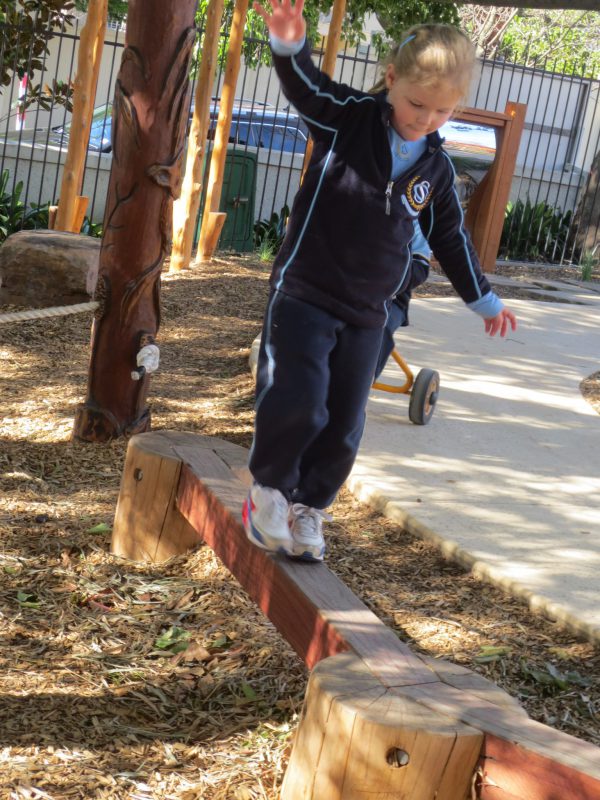
Avalon practising her balance skills as she walks across the beam.
-
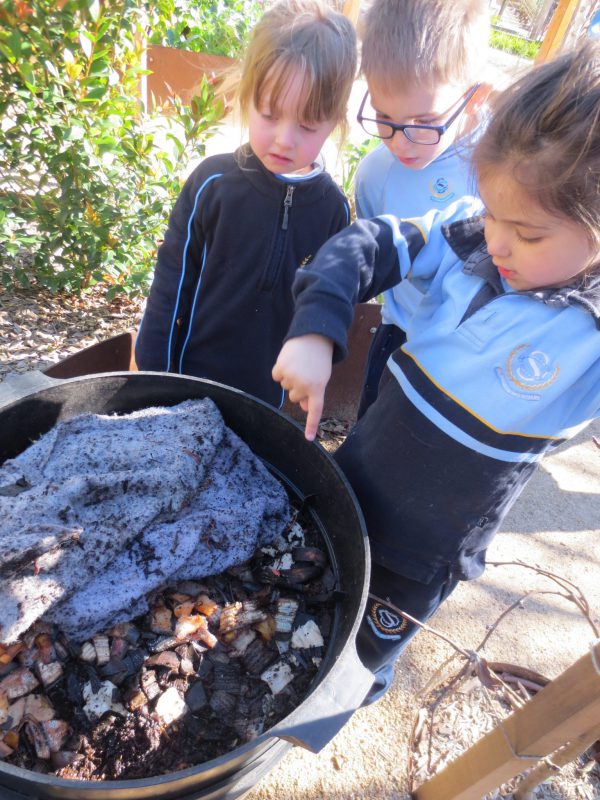
Tilly, Bernardo and Evie checking the food supply in our worm farm.
-
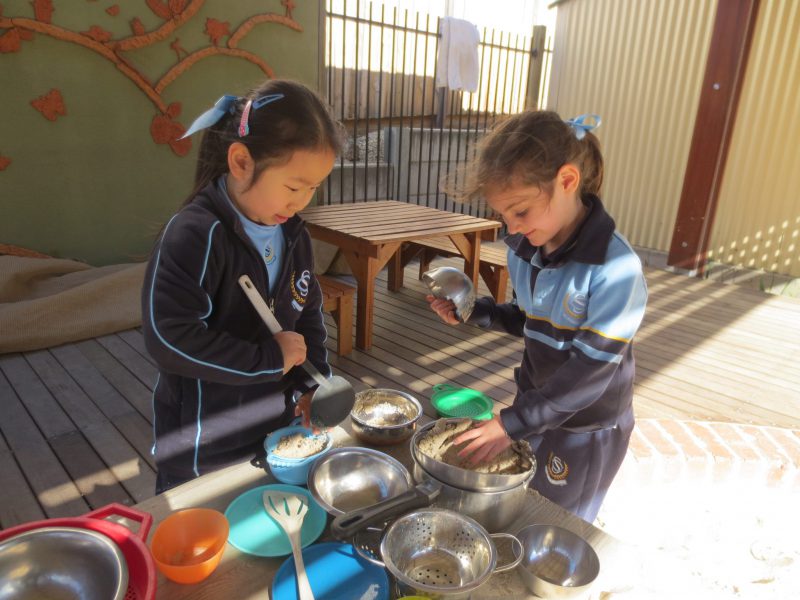
Kitty and Amelie enjoying sharing ideas as they create a selection of sandy treats.
-
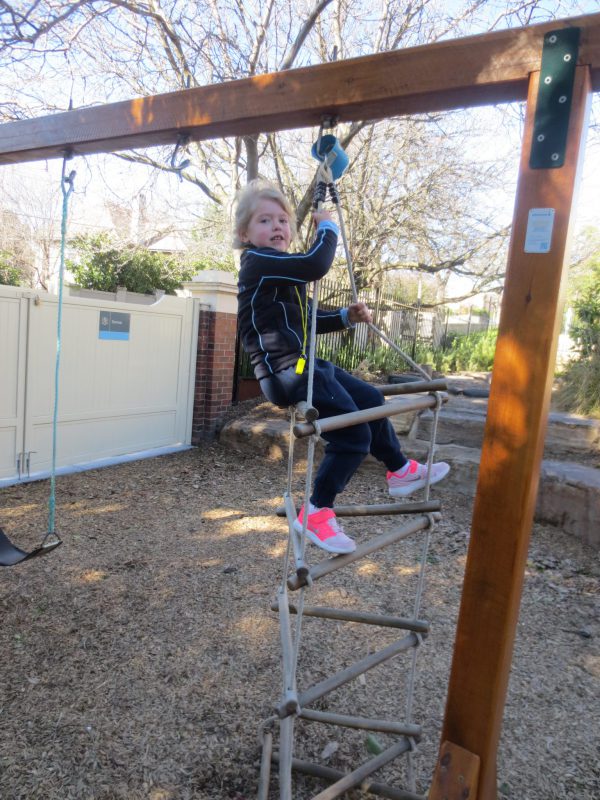
Charlotte proudly demonstrating her ability to climb to the top of the swinging ladder.


